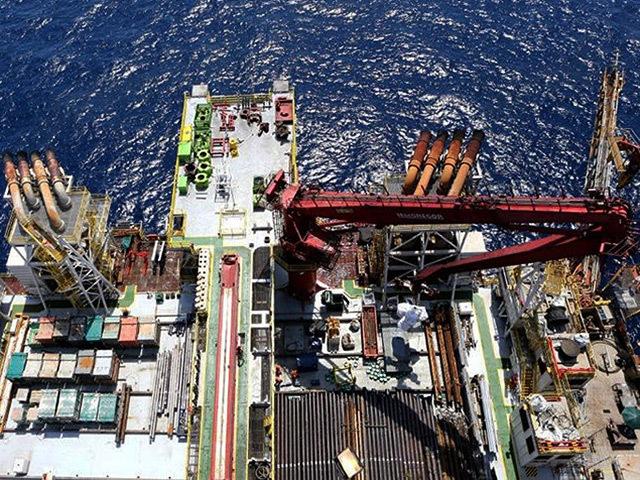
The biggest corporate issuer of bonds in emerging markets appears to be taking a breather.
Petroleos Mexicanos, the state-owned oil company known as Pemex, is finding new ways to raise cash — including a deal with private-equity firm KKR & Co. — as it seeks to limit how much in liabilities it takes on. The company has sold just $8.15 billion in peso and foreign-currency bonds in 2016, and its chief executive said late last month that it’s almost done with selling notes for the year, putting it on course for its lowest issuance in four years, data compiled by Bloomberg show.
It makes sense that Pemex would scale back its bond issues, analysts say, given that its $95 billion debt load is already raising red flags after 14 straight quarterly losses and 11 years of falling output. But the shift in its financing strategy comes with a price.
Pemex agreed to an implied interest rate of 8 percent in a $1.2 billion sale-leaseback deal with KKR last month, according to a person familiar with the deal. While that allows it to raise capital without technically adding to its liabilities, it compares with a 5.125 percent coupon on its most recent issue, a seven-year 900 million-euro bond. The yield on that bond has since fallen to 3.73 percent.
“If things were perfect, they wouldn’t have gone down this road,” said Luis Maizel, who helps manage $5.5 billion of assets, including Pemex bonds, as co-founder of LM Capital Group in San Diego. He said the KKR deal and others like it take seniority over bonds. Even so, “at the end of the day, we all want the company to move forward, keep selling, keep producing and so we bite the bullet.”